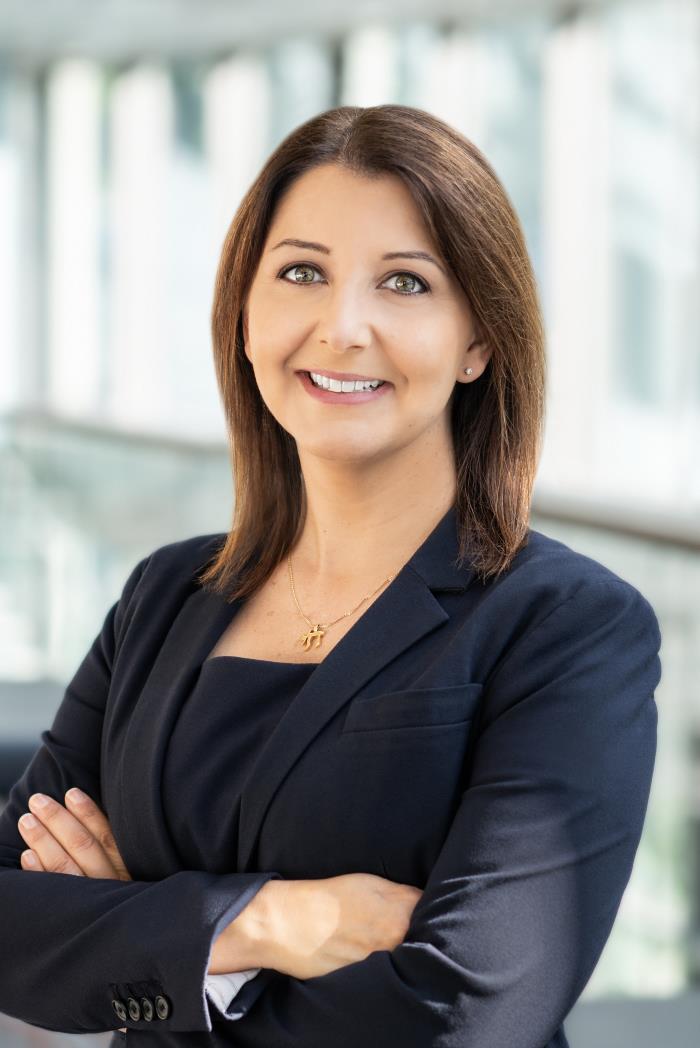‘That’s the kind of person you want’: colleagues and friends reflect on Yale School of Medicine alumna Mandy Cohen becoming CDC director
After President Biden’s June announcement that Cohen would step into the role over the summer, the News spoke with Cohen’s former advisors and colleagues about her career.

Courtesy of Lauren Bishop
President Joseph Biden tapped Yale alumna Mandy Cohen MED ’05 to serve as the next director of the Centers for Disease Control and Prevention this summer.
Biden selected Cohen on June 16 and she formally stepped into the role on July 10. She brings a wealth of experience from different fields to the role, having previously served in governmental positions at state and federal levels and as CEO of private company Aledade Care Solutions. In interviews with the News, Cohen’s friends and former colleagues reflected on her new role. Cohen was not available for comment.
Nancy Angoff, MED ’90 SPH ’81, the former associate dean of student affairs for the medical school, remembered Cohen as a student who was “quite mature” upon first impression and “thoughtful.”
Having met with Cohen several times throughout Angoff’s studies at the Yale School of Medicine, Angoff noted that Cohen was someone whose burgeoning interests in healthcare and involvement in leadership were clear from the start.
In light of her hard work, Cohen’s new role at the CDC did not come as a complete surprise to Angoff.
“In Mandy’s case, I think she foresaw making a difference in the bigger way that medicine is practiced out there in the world, as opposed to maybe in my office or even in my community,” Angoff said in an interview with the News.
As a summer intern in college, Angoff said, Cohen had already started getting involved in government by working
Later on during Cohen’s medical studies, Angoff explained that Cohen’s desire to “make an impact in a big way” in the world of health care led her to pursue a Master in Public Health degree at Harvard and travel to South Africa to analyze home-based care programs for those with HIV and AIDS.
After completing an internal medicine residency at Massachusetts General Hospital, Cohen moved to the Centers for Medicare and Medicaid Services in 2013, where she worked alongside Andy Slavitt, CMS’s former administrator and a senior advisor to the Biden administration’s COVID-19 response coordinator.
Slavitt first promoted Cohen to chief of staff at the agency, after which she eventually gained the additional title of chief operating officer. In these positions, Slavitt said in an interview with the News, they co-ran the agency together, where he observed first-hand Cohen’s value-driven approach to healthcare leadership.
“She’s someone who brings purpose and heart … to everything she does,” Slavitt explained. “She is very ethically, morally driven to do the right thing.”
One of Cohen’s former advisors during her time at Yale, Howard Forman, a professor of economics and of radiology and biomedical imaging at YSM, echoed that sentiment.
While Forman and Cohen only met a few times during her time as a student at Yale, in subsequent years they grew to become close colleagues and friends. Forman told the News that Cohen’s personality is strongly reflected in her approach to her work.
“What I would say is that she is an enormously capable and empathetic person who approaches public health and healthcare delivery in the same compassionate way that she provides clinical care as an internist,” Forman said.
After her time at the Centers for Medicare and Medicaid Services, Cohen served as the director of North Carolina’s Department of Health and Human Services for half a decade, where she received significant praise for coordinating the state’s response to the COVID-19 pandemic. Cohen worked for a year at Aledade Care Solutions after stepping down as North Carolina’s Department of Health and Human Services’ director.
Cohen now steps into the highest leadership role at an agency faced with a wide range of challenges.
Both Angoff and Forman expressed their concerns about the CDC that Cohen is set to inherit. Angoff noted the significant political controversy and public distrust enveloping the agency, while Forman cited issues with bureaucratic organization and morale within the agency.
“I think that her stepping in at this specific time in history is a tough one, because I think, from what we understand, morale has been low,” Forman said. “There are a lot of concerns about how do you get morale back up? How do you get people to take pride in their work and to appreciate it?”
Slavitt said Cohen’s strength lies in being “more of a uniter than a divider” when it comes to tackling not just the COVID-19 pandemic, but other public health issues like the opioid epidemic and mental health crises where “everybody wants a solution.”
Slavitt applauded the work Cohen has done so far as director, highlighting her efforts to promote clear, accurate information about the COVID-19 virus and vaccines to the American public, despite the issue’s political divisiveness.
“In jobs like this in Washington, you can’t be afraid of tough decisions and tough situations,” Slavitt said. “And what sets her apart is that she runs towards those situations, solves those problems, faces them with real accountability and execution. So if you’re talking about somebody who’s going to improve the culture at CDC, which has been beaten up quite a bit over the last few years, that’s the kind of person you want.”
The Centers for Disease Control and Prevention is headquartered in Atlanta, Georgia.
Kayla Yup contributed reporting.







